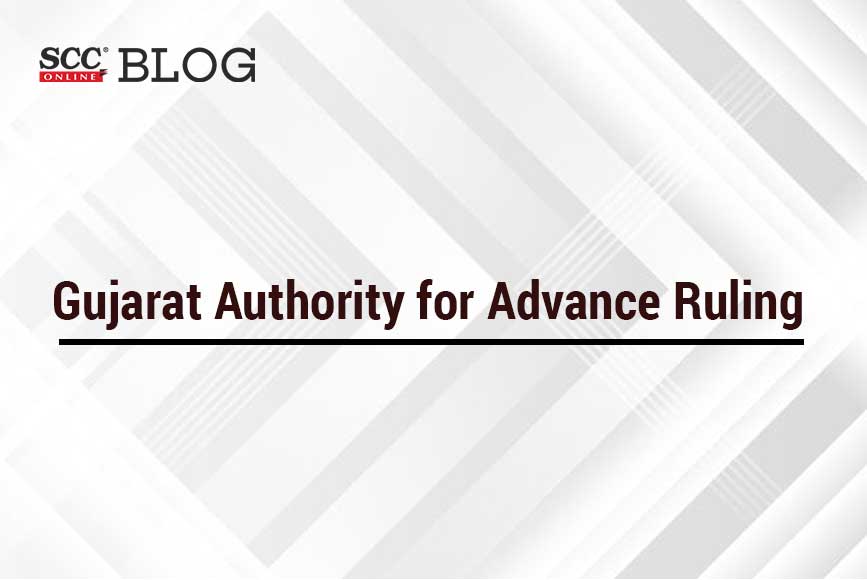Authority for Advance Ruling (Gujarat): In an application filed for seeking advance ruling on whether one time premium received by the applicant on allotment of completed building would be treated as taxable supply and regarding the applicable rate of tax, the two-member bench of Milind Kavatkar and Amit Kumar Mishra held that one time premium received by the applicant on allotment of completed commercial units/building is taxable supply in terms of Section 7 of the Central Goods and Services Tax Act, 2017. (‘CGST’). Further, the supply of the applicant is classified under SAC 9972, thus, would be leviable to tax at the rate of 18%.
In the matter at hand, the applicant is engaged in the business relating to construction of immovable properties. The Gujarat Government decided to develop an area through private sector participants on a commercial build, operate and transfer basis. The applicant has undertaken development of the project as per the approved plans. Upon duly completing the construction and development of the project, the Ahmedabad Municipal Corporation has issued the Building usage permission (‘BU permission’). The applicant wished to allot developed units to prospective buyers on a long-term lease basis for a period of 90 years. He has received booking for the certain units before getting BU permission and he has charged the GST at the applicable rate on the entire amount of the consideration received for the booking done before BU permission.
The issue is whether the transaction wherein the applicant received one time premium from the lessee would fall within the ambit of the definition of ‘supply’ under GST?
The applicant submitted that since this is a sale of a building wherein consideration has been received after the issuance of completion certificate, the transaction shall be treated neither as a ‘supply of goods’ nor a ‘supply of service’.
The Authority referred to Section 7 and Schedule II of the Central Goods and Services Tax Act, 2017, and said that any lease, tenancy, easement, license to occupy land is a supply of service. Further, any lease or letting out of a building including a commercial, industrial or residential complex for business or commerce, either wholly or partially is a supply of service.
The Authority observed that that the agreement made between the applicant and the lessee for 90 years cannot be termed as a ‘sale’ but in fact it is a ‘lease’, as in the present case, the lessee has to pay to the lessor advance annual lease rental of Re 1/- per square metre for the built area of the leased premises for the first three years and thereafter the same shall be enhanced by 200% for every subsequent block of 10 years.
The Authority viewed that the lease of plot for 90 years by the applicant is not “sale of land” but is a lease and therefore, does not fall within the ambit of clause 5 of Schedule III of CGST Act, 2017. Hence, concluded that the lease of commercial units on payment of one time lease premium and annual premium is a ‘supply’ falling within the ambit of section 7(1) of CGST Act, 2017, which defines supply as “all forms of supply of goods or services or both such as sale, transfer, barter, exchange, licence, rental, lease or disposal made or agreed to be made for a consideration by a person in the course or furtherance of business” read with Clause 2 of Schedule II of CGST Act, 2017, which specifies that lease of a land or building, as a supply.
[Kedaram Trade Centre, In Re, 2023 SCC OnLine Guj AAR-GST 5, decided on 31-03-2023]
Advocates who appeared in this case :
Represented by: Chartered Accountant Nirav Malkan, Chartered Accountant Akhil Shah.






